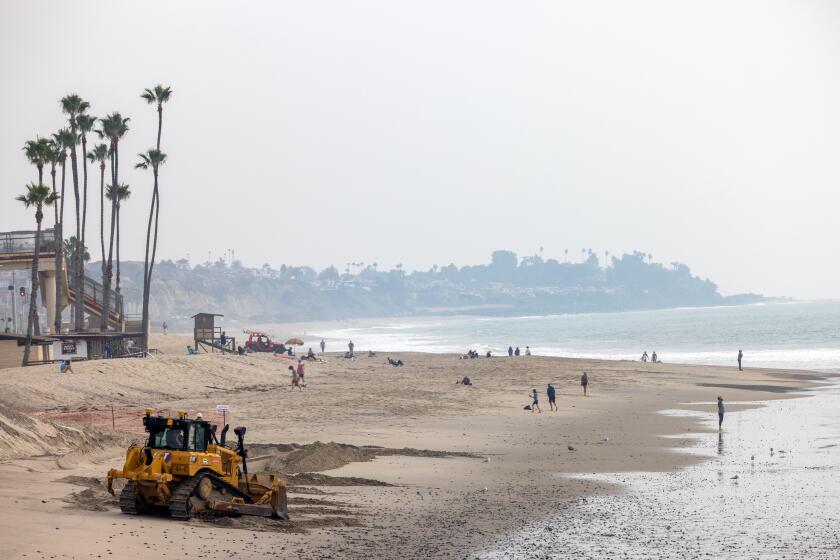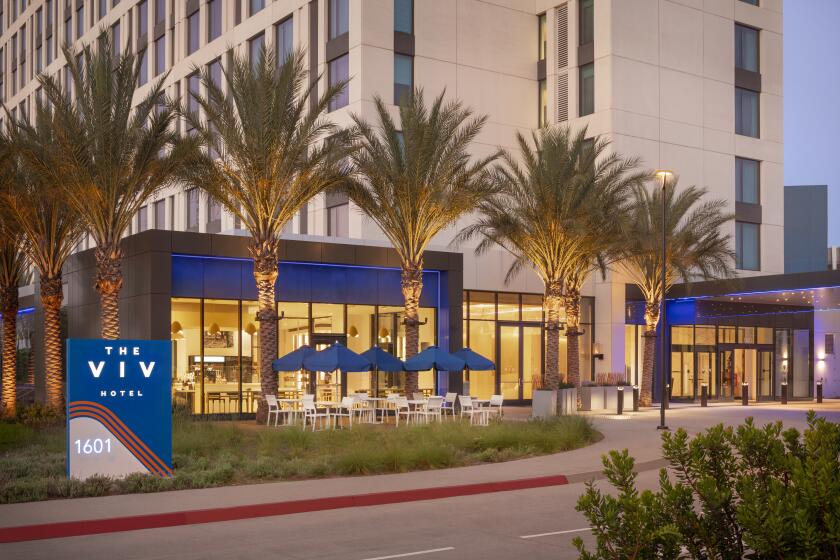‘Blues’ for deep blue sea
As a young boy, when Wyland saw the Pacific Ocean for the first time, he felt something shift within him.
Moments later, two gray whales peeked out from the surface of the water.
A lifelong connection was formed.
“I saw two gray whales spouting right in front of me,” said Wyland, 56, of his earliest memory of Laguna Beach in 1971. “I saw their barnacle-encrusted backs and their beautiful tails. After that, the whale tail has became the symbol of my art. What happens to you when you’re a kid can really be profound.”
Keeping his inspiration close at hand, Wyland is now an artist, documentary filmmaker and musician. At the heart of all his creativity lies the environment.
“That experience has stayed with me even to this day,” said Wyland, who goes only by his family name. “I decided to dedicate myself to marine life and use my art to bring attention to the great whales and oceans.”
When the self-ascribed “Lagunatic” visited the Gulf Coast five days after BP’s 2010 oil spill, he was “pushed over the edge” upon witnessing the beleaguered ocean and marine life. After being tugged back to shore due to the copious amounts of oil in the water, he was fueled to write 60 environmentally themed blues songs and three documentaries. “Blues Planet: Sounds,” the first part of the trilogy, will be screened by the Laguna Beach Film Society from 7 to 9 p.m. Friday at the Forum Theatre at the Festival of Arts grounds.
Set in post-Katrina New Orleans, with several songs recorded at Piety Street Recording on the first anniversary of the oil spill, the hour-long documentary was unveiled at last year’s Newport Beach Film Festival. The handiwork of nearly 40 blues artists, including Taj Mahal, Rod Piazza and Steve Turre, “Blues Planet: Sounds” was narrated by oceanographer Sylvia Earle of National Geographic fame. Creative director Gino Beltran and editor George Bryan also spent hours on the project.
When Wyland approached Nicholas Hernandez, a.k.a. Nick-I, a 27-year member of Orange County reggae band Common Sense, he immediately said, “I can do that. I want to do that.”
Hernandez, 48, a surfing, diving and fishing aficionado who lives in Laguna Beach, calls the ocean his “second home.” When presented with the opportunity to co-write and sing socially conscious blues music, he jumped on board.
“The main reason I would even get involved with a project like this is because of the idea of writing music that means something,” he said. “I believe in creating music for a cause. The universe has given us a station to make things better, and to spread peace and compassion.”
With a combination of music, art and videography, “Blues Planet: Sounds” analyzes society’s environmental challenges, the state of the oceans and the human impact on nature. The entire journey has been filmed, from writing music to performing at the Doheny Blues Festival. The documentary also features interviews with headlining conservationists and activists about the future of the Earth’s oceans. The next two installments in the series will be called “Blues Planet: Hope” and “Blues Planet: Future,” respectively.
“Some of the content in this film — from the butchering of sharks to the sheer destruction caused by the Gulf oil spill — can be tough to watch, but it’s an important part of understanding the problems we’re dealing with,” said Steve Creech, executive director of the environmental nonprofit Wyland Foundation, who helped to script and outline the film. “But showing the creative process of the musicians and artists working together on the ‘Blues Planet’ album puts the message in a context of people remaining hopeful that we can work out our planet’s problems. It’s about cooperation. Music is a great metaphor for that.”
The film earned the Sounds Award at the 2012 BLUE Ocean Film Festival in Monterey and will now provide the group a chance “to do things in their own backyard,” Creech said.
According to Wyland, who has created art with nearly 1 million kids worldwide, the environment should matter to everyone, not only him.
“Without a clean environment and healthy ocean, we really diminish our own lives,” he said. “We all depend on a clean and healthy world, and without that, we don’t have anything. Without water, there can be no life.”
Twitter: @RMahbubani
All the latest on Orange County from Orange County.
Get our free TimesOC newsletter.
You may occasionally receive promotional content from the Daily Pilot.



